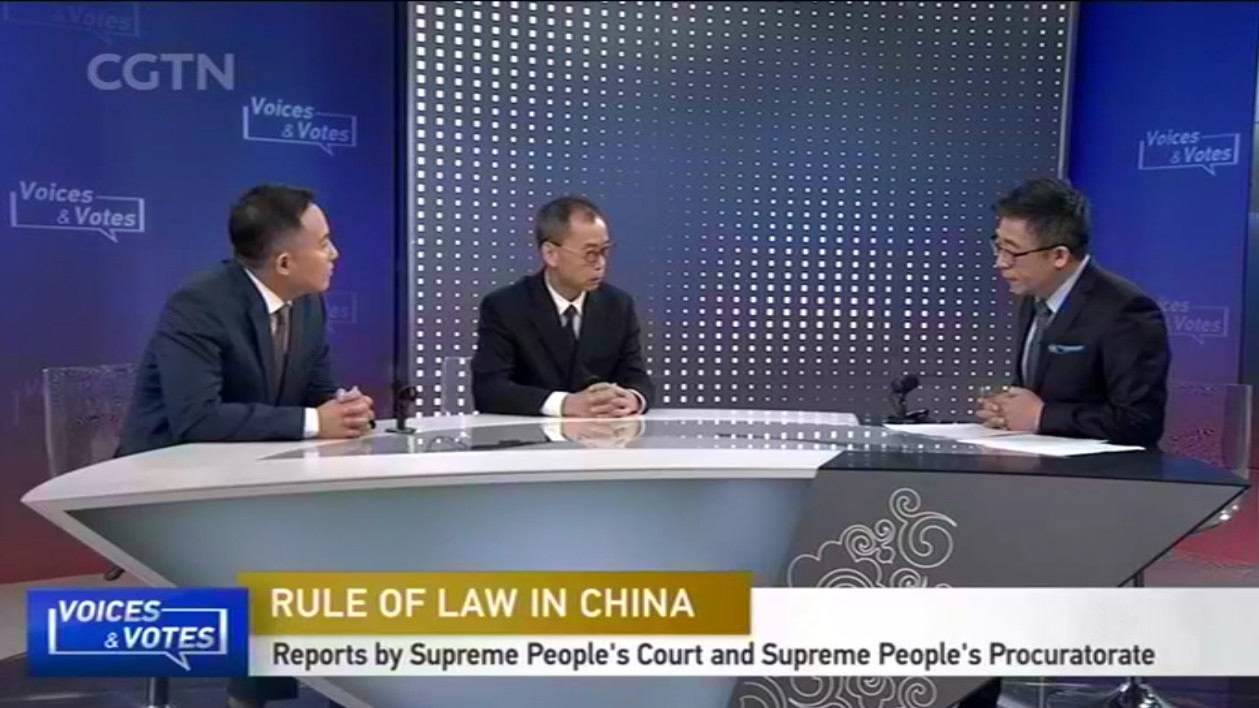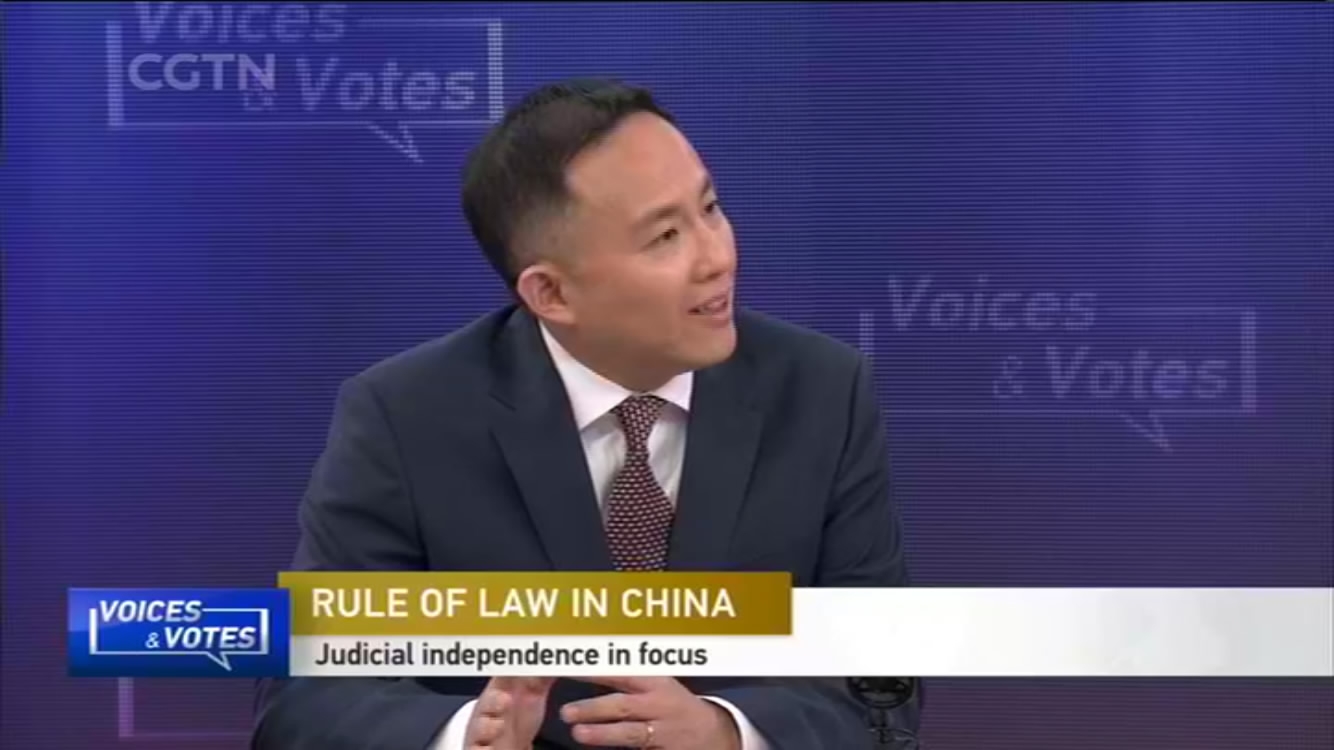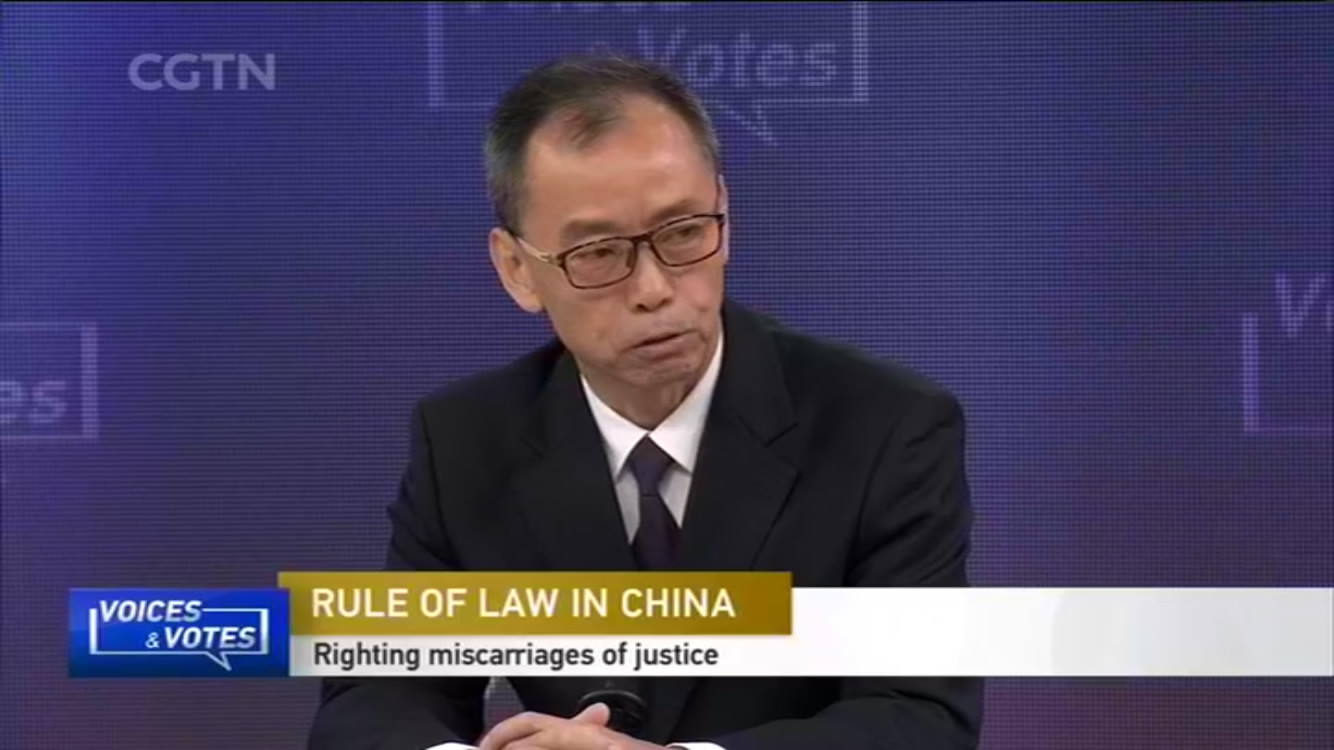
Politics
14:41, 13-Mar-2017
China continues to push rule of law
Updated
11:02, 28-Jun-2018

By CGTN's He Yu
Pledging to help secure national security, maintain social stability, and boost economic growth, China’s top court and procuratorate delivered their respective work reports on Sunday.
"[We will] resolutely protect the nation's political security, in particular the security of the state power and the political system," Chief Justice Zhou Qiang said at a plenary meeting of the National People's Congress annual session.
Meanwhile, Procurator-General Cao Jianming pledged to severely punish infiltrating, subversive and sabotage activities by hostile forces, violent and terrorist crimes, ethnic separatist activities and religious extremist activities, to "safeguard security, protect stability and promote harmony."
CPC and state leaders Xi Jinping, Li Keqiang, Zhang Dejiang, Yu Zhengsheng, Liu Yunshan, Wang Qishan and Zhang Gaoli attended the meeting.
When asked about his impression of the two reports, He Jing of AnJie Law Firm, says he thinks the top court and procuratorate did a great job, and he is very interested in the introduction of IT technology into their work.

“One of the things I notice from the Supreme Court report: you see a lot of the IT statistics there. The Supreme Court actually made a highlight of the live-streaming trials from last July. I think over 600,000 cases were on the live stream. So that means that people around the world can really look at it. This is a little bit different from before. This obviously has something added to the transparency.”
In its work report, the Supreme People's Court has also vowed to continue to overturn wrongful convictions and protect human rights in 2017.
In December, Nie Shubin, a villager in Hebei Province who was executed in 1995, was exonerated by the top court due to a lack of evidence for his conviction of murder and rape. The case generated heated discussion in the country. Some harshly criticized the police, prosecutors and judges. But Professor He Jiahong of Renmin University says his 10-year study of wrongful convictions shows there are some misconceptions.

“I don’t think that all those police officers, prosecutors, and judges are evil guys. And at least some of them are quite good people. So we have seen the loopholes in our criminal justice system, not the individual evil to cause the wrongful convictions. I think there are many - I call it misleading zones in our criminal justice system, you know, including the pressure for the police department to solve a criminal case in a certain time limit, and also the way to handle the case from a confession to evidence.”
According to a newly released white paper, Chinese courts have corrected 34 major miscarriages of justice and declared 3,718 defendants innocent in the past four years.
2km

SITEMAP
Copyright © 2018 CGTN. Beijing ICP prepared NO.16065310-3
Copyright © 2018 CGTN. Beijing ICP prepared NO.16065310-3